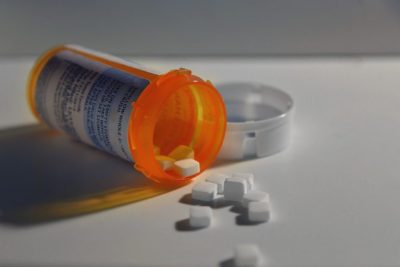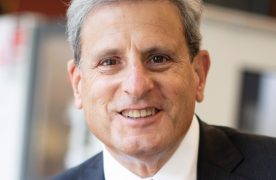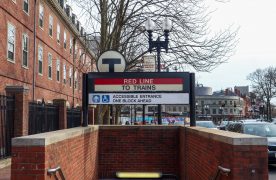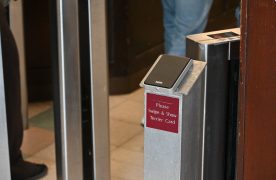The City of Boston is observing September as National Recovery Month, with virtual events aimed at fighting the stigma around substance addiction and celebrating recovery.

The City of Boston has designated September as National Recovery Month to destigmatize substance addiction and promote recovery. NICOLAS TEPPER/DFP FILE
On Tuesday, Massachusetts Opioid Screening and Awareness Day, the City hosted a virtual town hall event with opioid misuse and treatment experts. Attendees accessed free, anonymous online screenings for themselves or family, as well as referrals to treatment resources.
The Massachusetts Organization for Addiction Recovery hosted its 30th Annual Recovery Day Celebration Wednesday, which featured speakers, comedians and artists, as well as a speech from Mayor Marty Walsh.
A virtual panel on employment opportunities for those recovering from substance use disorder or disadvantaged by criminal records is scheduled for next Tuesday. Other events focused on how to talk about addiction and the systematic exclusion of racial minorities from the recovery movement.
Aside from these educational and informational events, this year’s Recovery Month activities included fitness-oriented events hosted by NamaStay Fighting and the Boston BullDogs Running Club.
Walsh, who has been open about his own recovery from alcohol addiction, created the Office of Recovery Services — the first municipal recovery office in the U.S., according to the City — in 2015 during his first term as mayor.
During the pandemic, those who suffer from substance use disorder have faced new challenges, including isolation, greater economic instability and reduced access to services.
Jennifer Tracey, director of the Mayor’s Office of Recovery Services, said the pandemic has posed particular challenges to those affected by substance use disorder who are homeless, as well as formerly incarcerated individuals who were released early without a comprehensive plan.
Care providers also faced new hurdles when adapting their various treatment programs to social distancing and sanitation guidelines, Tracey said.
“Our staff have been working outside to provide service to folks,” Tracey said. “Our Drug User Health Program that’s located on our Albany Street campus literally had to pop up tents.”
In addition to distributing supplies outdoors, the program had to create spaces to install portable toilets and make room for people to wash their hands.
Working closely with other City departments such as Public Works and the Age Strong Commission has been a significant part of fighting the stigma surrounding substance addiction, she said.
“Working closely with the criminal justice system [and] the hospitals to ensure that people are treated with dignity and respect,” Tracey said, “is part of the work that we do every day.”
Tracey said Recovery Month is an opportunity for people currently struggling with substance addiction to see that recovery is possible.
“Recovery Month and every day, really, is an opportunity for people to see people in recovery and that there is hope in recovery,” Tracey said, “and that treatment works and that people shouldn’t give up.”
Karen MacDonald is the director of community events at Gosnold Treatment Center in Falmouth, Mass. She said the center has participated in Recovery Month by producing short videos encouraging people to have hope for recovery.
“That’s really what Recovery Month is all about, it’s really about hope,” MacDonald said. “We hear about those suffering from addiction or that are in active addiction, but because of the anonymity of those in recovery, you don’t hear a lot of people talking about their recovery, so this is the perfect opportunity to put the message out there.”
MacDonald said isolation has posed challenges for those suffering from substance use disorder.
“I think the opposite of addiction, as they used to say, is recovery, and now a lot of people are saying the opposite of addiction is connection,” MacDonald said. “And that’s true, that we don’t do it alone … We need the help and support of others.”
Very few people, MacDonald said, have not been affected by the disorder in some form. She added that changing the language around substance addiction is an important part of fighting the stigma.
“It also has prevented many families out there, because of the guilt and shame,” MacDonald said, “to be able to let somebody know that they’re hurt or that their loved one is hurting.”















Support for BU students in recovery from substance use is available.
If you are a BU student in or considering recovery, connect with the BU Collegiate Recovery Program (CRP). The CRP is a community of BU students in recovery from substance use. You can learn more at bu.edu/shs/recovery, and reach out at recovery@bu.edu